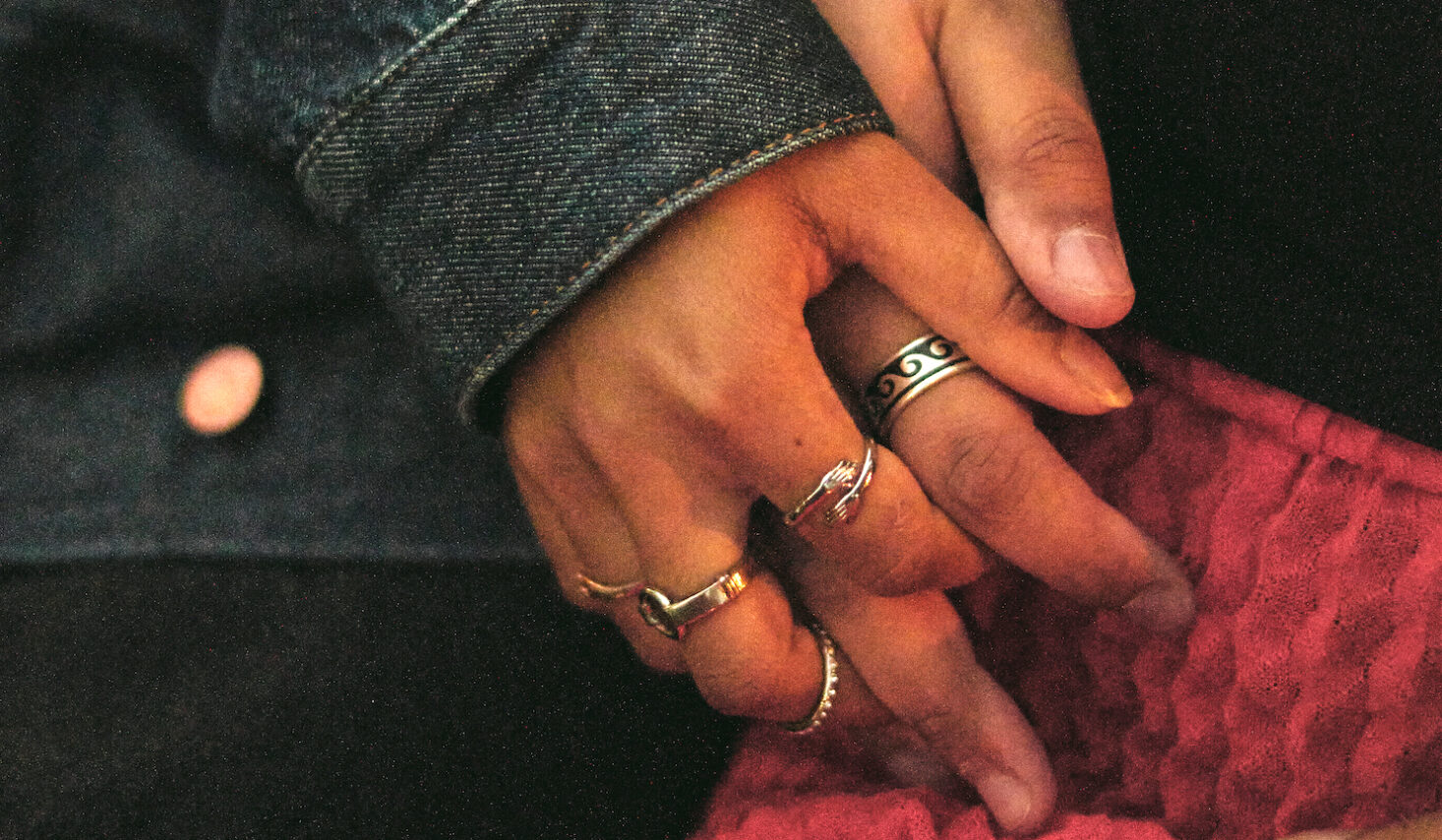
The loneliness epidemic is far-reaching, impacting everyone across the LGBT+ spectrum and straight folks alike. However, one relationship style is being heralded in this year’s State of Dating Report (Volume 3), from Feeld X Ruby Rare, as the ‘antidote’ to our loneliness woes.
Enter, ‘relationship anarchy’, or RA for short. Though the term was coined in 2006 by Swedish writer and activist Andie Nordgren, you may (or may not) be surprised to learn that this approach to relationships, built on the principles of mutual aid, anti-capitalism, and anti-hierarchy, has been around for millennia.
According to Feeld, the relationship style is once more on the rise and it’s queer youth and non-cis folks who are leading the charge. Perhaps this is unsurprising, after all, younger generations are proving to be increasingly curious about engaging with non-traditional ways of forming relationships
Specifically, Feeld’s report tells us that millennials and Gen Z are 1.5x more likely to know about RA than boomers. As newer generations open themselves up to exploring what sexuality, pleasure, identity and relationship styles mean to them, we may see relationship anarchy becoming a more common practice.
But what is relationship anarchy? And, how is it helping people navigate the loneliness crisis?
What is relationship anarchy?
For those of us who are still not clued in, relationship anarchy is there to question “the idea that love is a limited resource that can only be real if restricted to a couple”. If this sounds similar to Ethical Non-Monogamy, or ENM, you’d be right.
Relationship anarchy has several crossovers with or ENM, with one key difference. RA focuses on dismantling hierarchies in all relationships, including platonic relationships, making it particularly popular with aromantic and asexual communities. Whereas with ENM, there’s still a heavy emphasis on romance and sex.
But that’s not to say that it’s the holy grail of relationship styles, and still bears its fair share of interpersonal challenges. Most notably of which, as reported in the Feeld report, was negotiating relationship boundaries, which RA Feeld Members find a staggering 536% more challenging to do than non-RA Feeld Members, who were 46% more likely to find it easy to negotiate relationship boundaries as a relationship anarchist.
It’s thought that this could be because RA is uncharted territory, unmapped and self-governed, relying on deep reflection and emotional integrity, as well as a non-linear approach to growth. As such, there are no rules or boundaries ready-made to follow, which, while leaving room for deep, meaningful connections, means figuring things out, getting things wrong and a more complex network of relationships, personalities and expectations to balance alongside your own.
Nevertheless, those who practice RA feel as though they have a reliable support network and feel safer expressing their thoughts and feelings in their relationships. And, as the Feeld report states, no matter your relationship style, people feel less lonely when their emotional needs are met.
Tackling loneliness, or having a more honest relationship with it?
The data from the Feeld report is clear: compared to non-RA Feeld members surveyed, RA members reported being more able to shape relationships around their emotional needs by 31%, while being 20% more likely to report having a reliable support network. What’s more, RAs were found to be 1.5 times more likely to say that having a diverse range of connections helps combat loneliness.
Breaking this down, there seems to be a positive correlation between how relationships, big or small, are valued amongst RAs, who were 27% more likely to value small, deep connections for reducing loneliness, and 28% more likely to see dating apps as spaces for friendship and community, not just romance and sex.
Whether you decide to explore RA for yourself or not, have your toes firmly dipped in the pond or are fully submerged in the ethos already, RA’s invitation to take a long, honest look at the default hierarchy placed on relationships can only be a good thing. Especially when there is an opportunity to experience intimacy and meaningful connection outside of romantic relationships.
To quote the report, “This perspective doesn’t just challenge loneliness – it transforms it into an opportunity to build more authentic, affirming, and resilient relationships.”